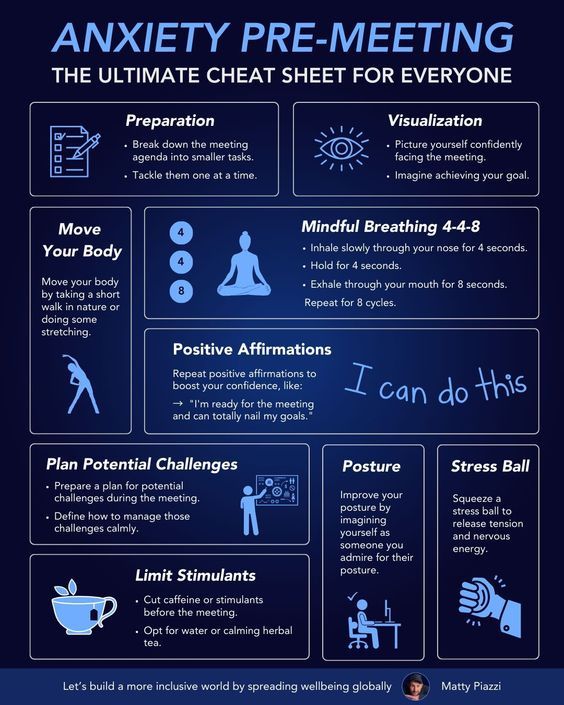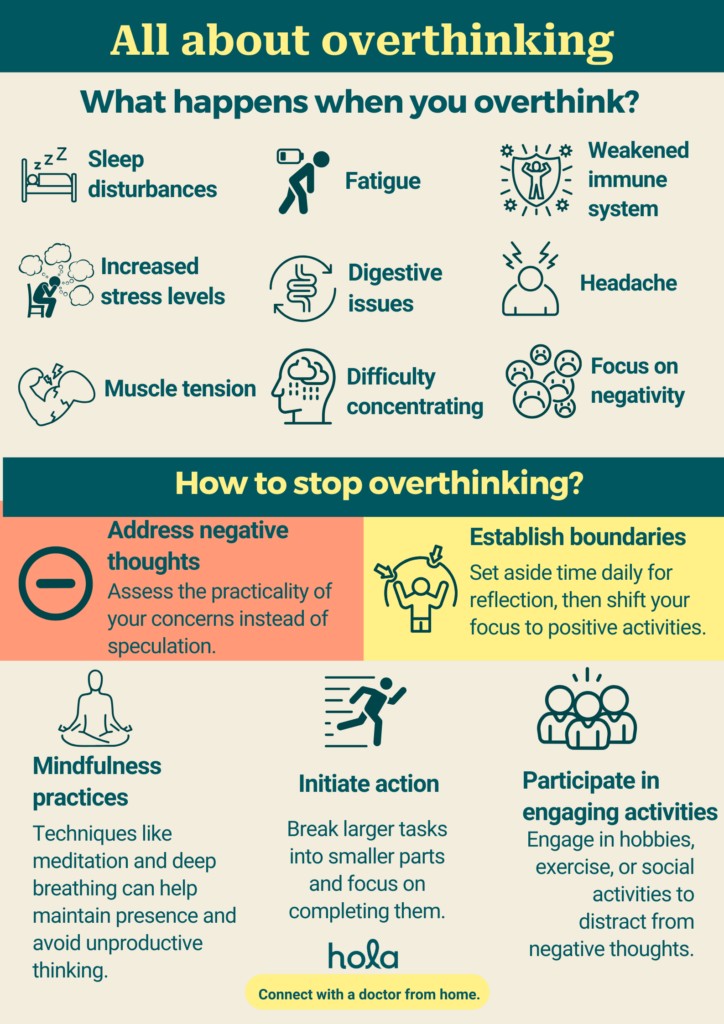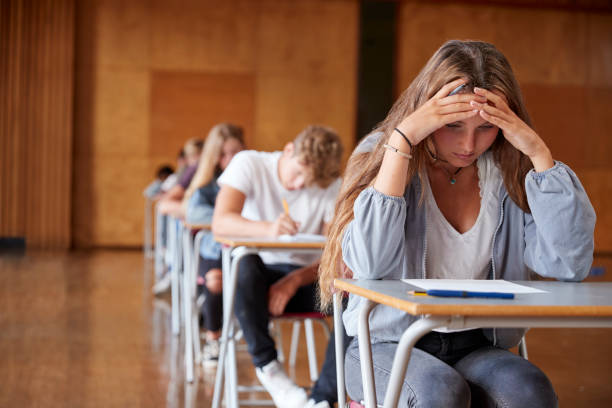More Than Just Grades: The Hidden Cost of Academic Life
In today’s hyper-competitive academic environment, many students silently wrestle with a storm of anxiety, overthinking, and academic pressure. While the outward signs of academic success — grades, achievements, scholarships — may suggest everything is fine, the mental toll behind the scenes often goes unnoticed and unspoken.
Anxiety, overthinking, and academic stress are deeply intertwined but uniquely challenging. This trifecta not only sabotages performance but can also erode mental health over time, as discussed in this article on student burnout by Healthline.
Yet, most conversations around academic performance rarely include these struggles. The societal narrative still glorifies hustle culture and equates sleepless nights with dedication, leaving little room to acknowledge that high achievers can be mentally exhausted.
This article aims to break that silence. By diving into what no one tells you about these invisible battles, we’ll explore the unspoken emotional consequences, the science behind the stress, and actionable strategies for reclaiming mental clarity — so students can thrive, not just survive.
The Silent Epidemic: Anxiety in Academics
Anxiety has quietly become one of the most pervasive mental health challenges among students. According to a 2023 report by the American Psychological Association, nearly one in three college students experiences significant anxiety that interferes with their academic performance.
Despite its prevalence, there remains a strong stigma surrounding mental health in academic spaces. Students fear being labeled as “weak” or “dramatic” if they admit to feeling overwhelmed. A study by Inside Higher Ed found that even as campus mental health resources expand, many students still feel isolated in their struggles.
This pressure is intensified by academic systems that reward constant output and perfectionism. Students are often expected to juggle heavy course loads, internships, and extracurriculars while maintaining a flawless GPA. As The Chronicle of Higher Education explores, the institutional pressure to excel often outpaces the emotional support offered to help students cope.
What makes academic anxiety especially dangerous is how quietly it can consume someone. Sometimes, it looks like a student who’s always “fine” but cries between study sessions or isolates themselves socially.
As Earth5R notes in their environmental and mental health awareness campaigns, unseen stress can have wide-reaching impacts on both individuals and communities.
The Hidden Spiral: How Overthinking Feeds the Cycle
Overthinking is often romanticized as deep reflection or “being thorough,” but in reality, it can be mentally exhausting and paralyzing. According to a 2022 article in Psychology Today, overthinking is linked to anxiety and depression and tends to worsen when people are overwhelmed with responsibility.
One of the most deceptive things about overthinking is that it gives the illusion of productivity. A Harvard Business Review article explains that this behavior stems from a desire to avoid failure — yet ironically, it often leads to missed opportunities and inefficiency.
Overthinking also deeply affects sleep, focus, and emotional well-being. Students may spend more time planning than doing, mentally rehearsing scenarios instead of completing tasks. A study published in the journal Frontiers in Psychology found a strong connection between rumination and academic burnout, particularly among high-achieving students.
Moreover, digital technology worsens the spiral. Constant access to academic forums, group chats, and grading portals can fuel compulsive behaviors like checking and re-checking results or rereading instructions multiple times.
As Verywell Mind notes, this can trap students in a loop where every notification becomes a trigger for self-doubt. Even when there’s nothing new to learn or do, their minds remain hyperactive — always searching for something to fix.

This infographic offers practical strategies to manage anxiety before high-stakes situations like meetings, many of which apply directly to students grappling with academic pressure and overthinking. Techniques like mindful breathing, visualization, and positive affirmations can be powerful yet overlooked tools for calming the mind and regaining focus.
Academic Pressure: The Elephant in the Classroom
Academic pressure is often treated as a necessary evil in education — a motivator, a rite of passage. But the truth is, it has evolved into a toxic force affecting millions of students globally.
According to a report from The Indian Express, academic stress has been a key contributor to rising cases of student burnout and even suicide, particularly in competitive environments like India’s IITs and coaching centers.
Family expectations can be both motivating and crushing. Many students feel they must succeed to repay sacrifices made by their parents or to uphold family reputation. This often leads to a lack of emotional freedom — students are unable to express fear or failure without feeling like they are letting someone down.
In a heartfelt Medium article by a university student, the author describes how familial pressure became a silent source of anxiety that no one around her acknowledged. When the only narrative is “work harder,” students are robbed of the chance to reflect, recover, or reassess their goals.
At the institutional level, the push for performance is relentless. The rise of competitive grading systems, standardized testing, and achievement-based scholarships creates an atmosphere where comparison is constant. Students aren’t just working to do well — they’re working to do better than someone else.
Social media compounds this pressure by creating a false image of academic perfection. Seeing peers post achievements, college admissions, and productivity routines can create a sense of inadequacy and urgency.
All of this fuels a damaging cycle: the more pressure students feel, the less likely they are to take breaks, reach out for help, or admit that they’re struggling. Instead, they internalize the pressure and isolate themselves, often leading to burnout.
Earth5R’s Youth Empowerment Campaign highlights how resilience, not perfection, is what leads to long-term sustainability in both learning and life — a message sorely missing from mainstream education systems.
What No One Tells You – The Unseen Impact
While anxiety, overthinking, and academic pressure often make headlines, the emotional and cognitive aftermath is rarely discussed.
Students dealing with chronic stress don’t just struggle with completing tasks — they begin to lose their sense of self. A study by the National Library of Medicine found that sustained academic stress impairs emotional regulation, affecting long-term motivation and self-esteem.
Mental exhaustion doesn’t always look like burnout or breakdowns. Sometimes, it manifests as apathy — skipping classes, procrastinating, or withdrawing socially. Students might look “lazy” or “unmotivated” when, in reality, their brains are in survival mode.
There’s also a physical toll. Students under intense academic pressure often suffer from headaches, insomnia, poor nutrition, and weakened immune responses. As WebMD explains, stress is not just a mental experience — it affects the entire body.
Relationships also suffer under academic strain. Many students isolate themselves to keep up with deadlines or fear becoming a burden by sharing their feelings. But isolation worsens anxiety and reinforces overthinking patterns.
And then there’s the silence: the internalized belief that everyone else is coping better. This perceived loneliness often leads students to suffer quietly, believing something is wrong with them. Campaigns like Earth5R’s Mental Health & Sustainability project emphasize the importance of community-based dialogue and collective support — the very things missing from many educational institutions.
Breaking the Cycle – Steps Toward Healing
Breaking free from the grip of anxiety, overthinking, and academic pressure doesn’t require radical transformation overnight. Rather, it starts with small, intentional shifts in habits and mindset.
According to the National Alliance on Mental Illness (NAMI), awareness is the foundation of healing — once students name their struggles, they can begin to take action.
One powerful tool is mindfulness. A Harvard Health article details how college students who practiced mindfulness reported fewer symptoms of anxiety and greater emotional resilience. Mindfulness doesn’t eliminate problems, but it offers clarity and calm amidst the chaos.
Another critical strategy is time management, but not in the traditional hustle culture sense. Approaches like time-blocking, the Pomodoro technique, or priority matrices help students manage workloads without burning out. Todoist highlights that the most effective time management strategies are not about doing more — they’re about doing what matters most.
Seeking support should never be underestimated. Whether it’s a friend, counselor, or mentor, having someone to talk to reduces the isolation that fuels anxiety and overthinking. Active Minds encourages peer-to-peer support and destigmatization, making it easier for students to speak up before things spiral.
Creating a nurturing environment also plays a vital role. This includes both the physical study space and the broader academic culture. According to Headspace, a peaceful environment fosters better focus and emotional balance.
On a larger scale, Earth5R emphasizes the role of community in mental and environmental wellness through their youth-driven sustainability initiatives, which foster both purpose and connection.
Lastly, self-compassion is the thread that holds all healing practices together. Students must learn to treat themselves with the same kindness they offer others. Kristin Neff’s research shows that self-compassion is a stronger motivator than self-criticism, especially during failure.

This infographic highlights the hidden physical and mental toll of overthinking—something students under academic pressure often silently endure. It also outlines simple yet effective strategies like mindfulness and action-taking, which are rarely emphasized in traditional academic settings.
To truly address anxiety, overthinking, and academic pressure, we must fundamentally rethink what it means to “succeed” in education.
Reimagining Success – A Healthier Academic Culture
For too long, academic success has been defined by grades, rankings, and resume points, leaving little room for creativity, personal growth, or emotional well-being. As highlighted in this Edutopia article, success should also measure collaboration, curiosity, and compassion.
One of the most powerful ways to reshape this narrative is by amplifying student agency. When students are given the freedom to set goals based on their passions and values, they’re more engaged, resilient, and mentally healthier.
Educational institutions also play a role in nurturing this shift. Universities that offer flexible grading policies, mental health workshops, and ungraded reflection-based assignments are seeing positive changes. The Chronicle of Higher Education explored how some colleges are redesigning courses to prioritize student well-being without compromising academic rigor.
On a broader scale, movements like Earth5R’s education for sustainable development emphasize the importance of aligning education with real-world challenges and community impact.
These initiatives empower students to think beyond personal achievement and contribute meaningfully to their surroundings, which enhances both motivation and well-being.
By reimagining academic success through a more compassionate and inclusive lens, we can begin to heal the invisible wounds inflicted by traditional education systems. This is not a utopian dream — it’s an urgent necessity.
Building Long-Term Resilience – Thriving Beyond Pressure
Academic stress, anxiety, and overthinking may feel overwhelming in the moment, but developing resilience can transform how students respond to these challenges over the long term. Resilience isn’t about “toughing it out” — it’s about creating tools and systems that help students recover, learn, and thrive.
One of the most essential components of resilience is emotional intelligence. This includes being able to recognize, understand, and manage one’s own emotions while empathizing with others.
Self-care practices also play a critical role in resilience. Regular sleep, balanced nutrition, and physical activity improve mood, memory, and cognition.It’s not just about pampering — it’s about creating conditions in which the mind can function optimally. This foundation gives students the strength to bounce back when setbacks arise.
Another overlooked but vital aspect of resilience is purpose. When students tie their academic work to something meaningful — whether it’s a cause, a personal goal, or a future vision — they are more likely to stay motivated through tough times. Earth5R’s student-led sustainability campaigns are powerful examples of how purpose-driven learning increases engagement and mental well-being.
Finally, social support networks can make or break resilience. A strong circle of peers, mentors, and family creates a safety net for when stress becomes overwhelming. Studies from The American Psychological Association show that individuals who feel connected to others are more likely to navigate challenges successfully.
Whether it’s a quick chat, a group study session, or therapy, reaching out isn’t a sign of weakness — it’s a smart resilience strategy.
As the famous American author Dan Millman says; “You don’t have to control your thoughts. You just have to stop letting them control you.”
As we reimagine what success and learning really mean, may we create systems and cultures that prioritize mental well-being, celebrate effort over perfection, and honor the individual behind the achievements.
Frequently Asked Questions: What No One Tells You About Anxiety, Overthinking, and Academic Pressure
What is academic anxiety?
Academic anxiety is a type of performance anxiety related to schoolwork, exams, and the pressure to succeed academically. It often manifests as nervousness, overthinking, and a fear of failure.
Why do students overthink so much during school or college?
Overthinking stems from perfectionism, fear of judgment, and uncertainty about the future. It’s common among high-achieving students who place immense pressure on themselves to perform well.
Can anxiety really affect academic performance?
Yes, anxiety can significantly impact focus, memory retention, and decision-making, leading to decreased academic performance.
Is it normal to feel overwhelmed during exams?
Yes, feeling overwhelmed during exams is common, especially when students have unrealistic expectations or poor time management.
How does academic pressure begin?
Academic pressure often begins at an early age through societal expectations, competition, and the fear of not meeting parental or institutional standards.
What’s the difference between stress and anxiety?
Stress is a short-term response to a specific situation, while anxiety is a more persistent feeling of worry that may not have an identifiable cause.
How can I tell if I’m overthinking?
If you find yourself stuck in a loop of “what-ifs,” imagining worst-case scenarios, or struggling to make decisions, you’re likely overthinking.
Can social media increase academic pressure?
Yes, social media can amplify academic pressure by promoting unrealistic standards of success and comparison among peers.
What role does sleep play in managing anxiety?
Sleep is crucial. Lack of sleep can increase irritability, reduce focus, and worsen symptoms of anxiety and stress.
Does talking to someone help with overthinking?
Absolutely. Talking to a friend, counselor, or therapist can help break the cycle of overthinking by gaining perspective and emotional support.
Are there any exercises to calm academic anxiety?
Yes, breathing exercises, mindfulness, and progressive muscle relaxation can help reduce anxiety symptoms.
What is a growth mindset and how does it help?
A growth mindset is the belief that abilities can be developed through effort and learning. It helps reduce the fear of failure and promotes resilience.
Why do smart students struggle with overthinking?
Smart students often set high expectations for themselves and worry about not meeting them, which leads to overthinking and self-doubt.
How can I manage time better to reduce stress?
Use planners, to-do lists, and time-blocking methods. Prioritize tasks and break big assignments into manageable steps.
Is it okay to take a break from studies when I feel anxious?
Yes, taking intentional breaks can prevent burnout and help you return to your work with a refreshed mind.
Can journaling help with anxiety and overthinking?
Yes, journaling helps you process thoughts, identify patterns, and reduce mental clutter.
How do family expectations contribute to academic pressure?
When families emphasize grades over personal growth or compare children to others, it can lead to guilt, shame, and increased pressure to succeed.
What role does physical activity play in mental health?
Exercise releases endorphins, which boost mood and reduce anxiety. It also improves sleep and overall brain function.
How can educators reduce academic pressure on students?
By fostering open communication, flexible assessment methods, and encouraging a balanced life, educators can reduce stress and support student well-being.
What should I do if anxiety becomes too overwhelming?
Seek help from a mental health professional. Therapy, counseling, or even academic advisors can guide you through tough periods.
-Authored By Pragna Chakraborty





